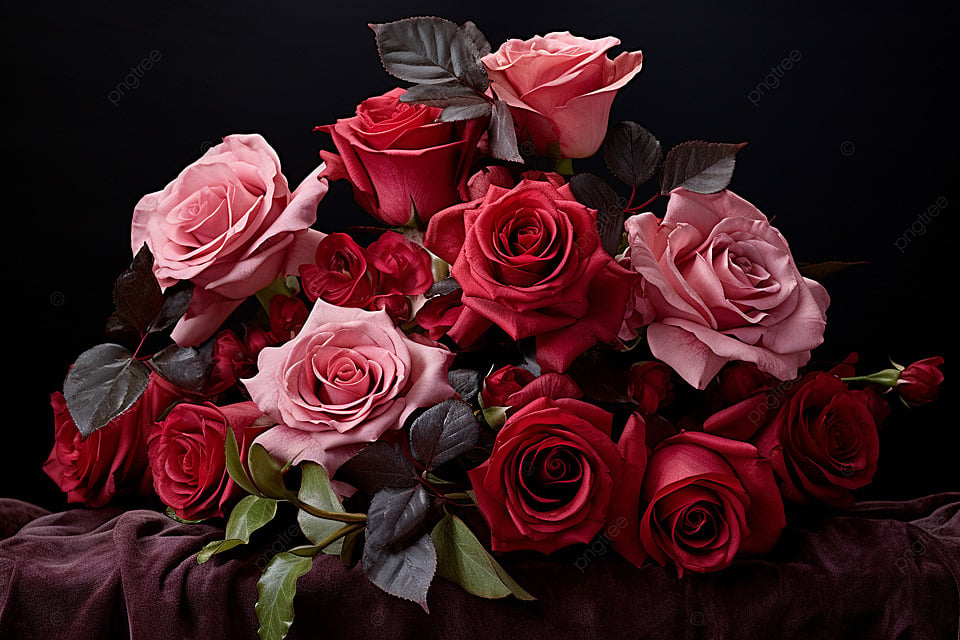Introduction
Flowers are more than just beautiful decorations; they are powerful symbols that can convey deep emotions and set the tone for any occasion. From joyous celebrations to moments of remembrance, the right flowers can enhance the atmosphere and make a lasting impression. Whether you’re planning a grand event or a simple gathering, choosing the perfect flowers can elevate the experience and leave a meaningful impact on everyone involved.
1. Understanding the Language of Flowers
The Symbolism of Different Flowers
Flowers have their own language, with each bloom carrying specific meanings. For example, roses are synonymous with love and passion, making them a popular choice for romantic occasions. Lilies, on the other hand, symbolize purity and renewal, making them ideal for weddings and baptisms. Tulips, known for their elegance, represent perfect love and are often chosen for anniversaries. Understanding the symbolism of different flowers can help you select the most appropriate blooms for any event, ensuring that your floral arrangements communicate the right message.
Cultural Significance
Flowers also hold cultural significance, and what may be a symbol of joy in one culture could have a different meaning in another. For instance, in some Asian cultures, white flowers like chrysanthemums are associated with funerals and mourning, while in Western cultures, they might symbolize purity and innocence. Being aware of these cultural differences can help you make thoughtful and respectful choices, especially when selecting flowers for events with a diverse group of guests.
2. Flowers for Celebratory Occasions
Weddings
Weddings are one of the most significant events in a person’s life, and the choice of flowers plays a crucial role in setting the tone. Roses, peonies, and lilies are popular choices for wedding bouquets and arrangements as they symbolize love, purity, and new beginnings. When selecting flowers for a wedding, it’s important to consider the wedding venue. For instance, a garden wedding might be best complemented by lush, vibrant blooms like hydrangeas and wildflowers, which blend seamlessly with the natural surroundings. Seasonal flowers are also worth considering, as they can match the theme and help manage the budget by being more readily available.
Birthdays
Birthdays are a time for celebration, and the right flowers can add a cheerful touch to the festivities. A thoughtful way to choose birthday flowers is by considering the recipient’s birth month. For example, carnations are associated with January, while lilies are the flower for May. Bright and cheerful flowers like sunflowers, gerberas, and daisies are also excellent choices, as they bring a sense of joy and happiness to the occasion.
Anniversaries
Anniversaries celebrate love and commitment, making it important to choose flowers that reflect these sentiments. Orchids, with their long-lasting beauty, symbolize love, luxury, and strength—perfect for celebrating years of togetherness. Sunflowers, representing adoration and loyalty, are another great choice. Additionally, some couples choose flowers that correspond with the number of years they’ve been married, such as daisies for the fifth anniversary or roses for the fifteenth.
3. Flowers for Expressions of Sympathy
Funerals and Memorial Services
When expressing sympathy, it’s essential to choose flowers that convey peace, comfort, and remembrance. Lilies are a traditional choice for funerals, symbolizing the restored innocence of the soul of the deceased. Chrysanthemums are also commonly used in funeral arrangements, especially in European and Asian cultures, where they represent death and grief. Subdued and respectful arrangements, such as white lilies or pale roses, are often preferred in these somber moments.
Get Well Soon Bouquets
Sending flowers to someone who is unwell is a thoughtful gesture that can lift their spirits and bring a touch of cheer to their environment. Uplifting flowers like daisies, sunflowers, and tulips are excellent choices, as they symbolize hope and positivity. When sending flowers to a hospital, it’s important to choose non-fragrant varieties to avoid overwhelming the patient or others nearby. Bright, cheerful colors can also help create a positive atmosphere that promotes healing.
4. Flowers for Romantic Gestures
Valentine’s Day
Valentine’s Day is synonymous with love, and flowers are a classic way to express romantic feelings. Red roses are the quintessential choice for this day, symbolizing deep love and passion. However, if you’re looking to stand out, consider alternative romantic flowers like tulips, which represent perfect love, or orchids, which signify exotic beauty and strength. These unique choices can add a special touch to your Valentine’s Day gesture.
Just Because
Sometimes, the best flowers are those given without a special occasion—just because you want to brighten someone’s day. Spontaneous flower giving is a wonderful way to show affection and appreciation. Wildflowers or mixed bouquets are great options for these moments, as they bring a sense of freshness and joy. Unexpected flowers can be a delightful surprise that expresses your feelings in a meaningful way.
5. Seasonal Flower Selection
Spring
Spring is a season of renewal and growth, making it the perfect time to choose fresh, vibrant flowers. Tulips, daffodils, and hyacinths are classic spring blooms that symbolize the start of something new. These flowers are ideal for springtime events like weddings, Easter celebrations, and Mother’s Day, as they bring a burst of color and life to any occasion.
Summer
Summer is all about warmth, brightness, and bold colors. Sunflowers, daisies, and zinnias are popular summer flowers that can bring a touch of sunshine to any event. Whether you’re planning a summer wedding, a garden party, or a casual get-together, these flowers can enhance the lively atmosphere and make your event unforgettable.
Autumn
As the leaves change color, so too do the best floral choices. Autumn is the season for warm-toned flowers like chrysanthemums, marigolds, and dahlias. These blooms reflect the cozy, rustic feel of fall and are perfect for autumn weddings, Thanksgiving celebrations, and other seasonal gatherings. They add a rich, earthy vibe that complements the natural beauty of the season.
Winter
Winter flowers often exude elegance and sophistication. Poinsettias, amaryllis, and holly are classic choices for the colder months, especially during festive occasions like Christmas and New Year’s. These flowers, often in white or deep red hues, can add a touch of warmth and beauty to the season’s celebrations, making any event feel more special.
Conclusion
Choosing the right flowers for different occasions is an art that combines symbolism, seasonality, and personal taste. Whether you’re celebrating a milestone, expressing sympathy, or simply showing someone you care, the perfect flowers can make a world of difference. By considering the occasion, the season, and the message you want to convey, you can select blooms that not only look beautiful but also resonate with meaning. Thoughtful flower choices can create lasting memories and leave a lasting impression.
FAQs
What are the best flowers for a wedding?
For weddings, roses, peonies, and lilies are popular choices as they symbolize love, purity, and new beginnings. Consider the wedding venue and season when selecting flowers to ensure they complement the overall theme.
How do I choose flowers that fit the season?
To choose seasonal flowers, focus on blooms that are naturally available during that time of year. For example, tulips and daffodils are perfect for spring, while sunflowers and zinnias are ideal for summer events.
What flowers are appropriate for expressing sympathy?
Lilies and chrysanthemums are traditional choices for expressing sympathy. These flowers symbolize peace, comfort, and remembrance, making them appropriate for funerals and memorial services.



